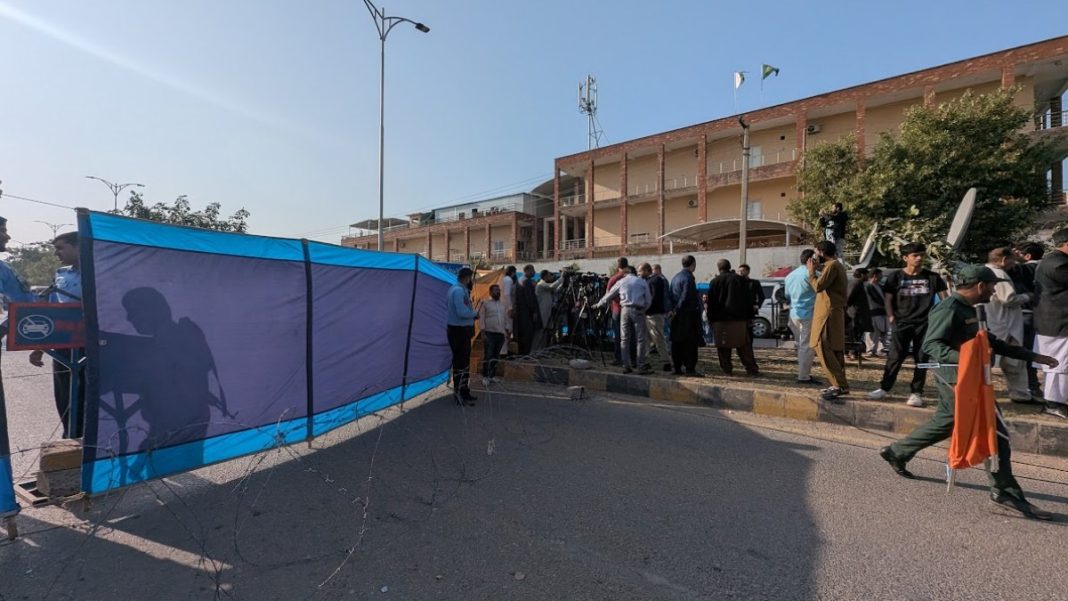The quiet hum of daily life in Islamabad was shattered by an act of terror, a bombing that ripped through the nation’s capital, leaving behind a stark landscape of fear and uncertainty. In the immediate aftermath, as rescue efforts commenced and the world watched on, a grave accusation emerged from Pakistani authorities: the attack was orchestrated by ‘India proxies.’ This isn’t just a claim; it’s a profound statement that sends tremors across an already volatile region, demanding a closer look at what we understand to be true amidst the fog of conflict.
The Shockwave in Islamabad
While the specifics of the incident are still being pieced together, the impact was immediate and devastating. An explosion in a bustling area of Islamabad brought chaos, claiming lives and injuring many. For a city that has, at times, felt the distant echoes of regional instability, this direct assault struck a deep chord. It’s a chilling reminder that no capital is entirely immune to the shadow of extremism and geopolitical machinations. The swiftness of the official response, pinpointing external involvement, underscored the gravity of the situation, shifting the narrative from a standalone act of terror to something far more entangled.
The Immediate Finger-Pointing: ‘India Proxies’
The accusation of ‘India proxies’ isn’t new in the complex dance between Pakistan and India. It’s a term that encapsulates a long history of suspicion, cross-border allegations, and the often-unseen battles fought through non-state actors. When Pakistan attributes such a significant event to ‘proxies,’ it suggests a calculated, external hand at play, using groups or individuals to destabilize the nation without direct military engagement. This narrative often gains traction in times of heightened tension, serving to frame internal security challenges within a broader, external threat matrix.
However, the immediate leap to such a conclusion also raises questions. “It’s a familiar script, isn’t it?” mused one seasoned security analyst. “Whenever a significant security breach occurs, the immediate finger-pointing across the border often begins, sometimes before a thorough investigation can even conclude. While genuine external threats exist, these accusations can also muddy the waters, making it harder to address root causes.” This sentiment highlights the delicate balance between genuine intelligence and the political utility of such claims in a region where trust is a rare commodity.
Beyond the Blame: Geopolitical Ripples
Regardless of the veracity of the claims, the mere act of publicly accusing ‘India proxies’ has significant geopolitical ramifications. It instantly escalates tensions between the two nuclear-armed neighbors, making de-escalation and diplomatic engagement even more challenging. Such accusations often lead to a hardening of stances, increased border vigilance, and a potential for retaliatory rhetoric or actions. Internally, it can consolidate public opinion against a perceived external enemy, rallying support behind government actions, but also potentially stifling deeper self-reflection on domestic security vulnerabilities.
The challenge for any observer lies in sifting through the layers of official statements, historical grievances, and verifiable facts. What we know for certain is that a heinous act of violence occurred, and Pakistan has chosen to lay the blame at a familiar doorstep. The path forward requires not just a meticulous investigation into the bombing itself, but also a careful consideration of how such accusations impact regional stability and the elusive quest for peace.
The Islamabad bombing is a tragic event, and Pakistan’s immediate attribution to ‘India proxies’ opens a complex chapter in regional dynamics. While the details surrounding the attack continue to unfold, the weight of this accusation is undeniable, shaping narratives, fueling tensions, and underscoring the enduring struggle for security and stability in a volatile part of the world. The call for justice must be met with a steadfast commitment to truth, lest the cycle of blame perpetuate further instability.




